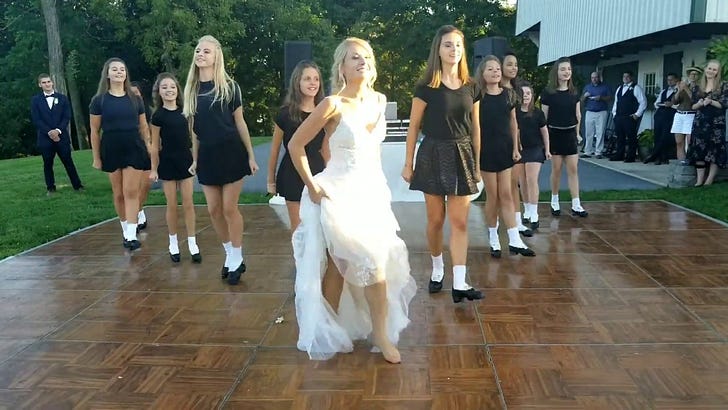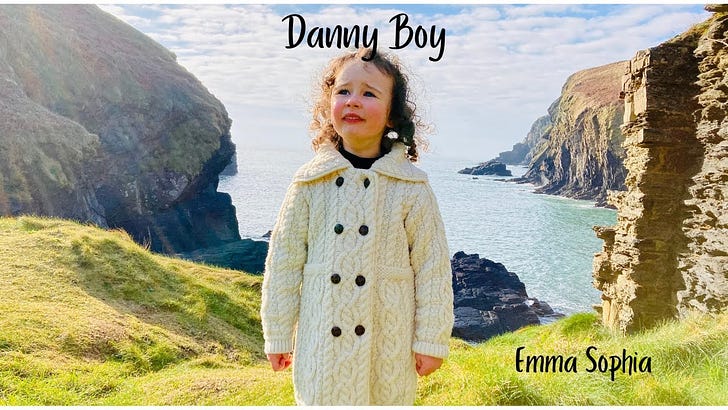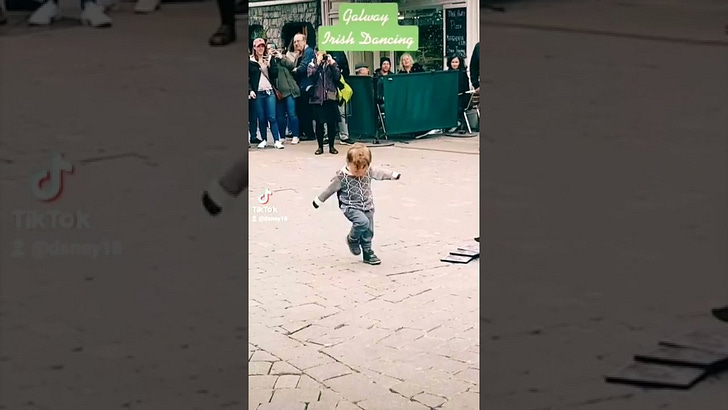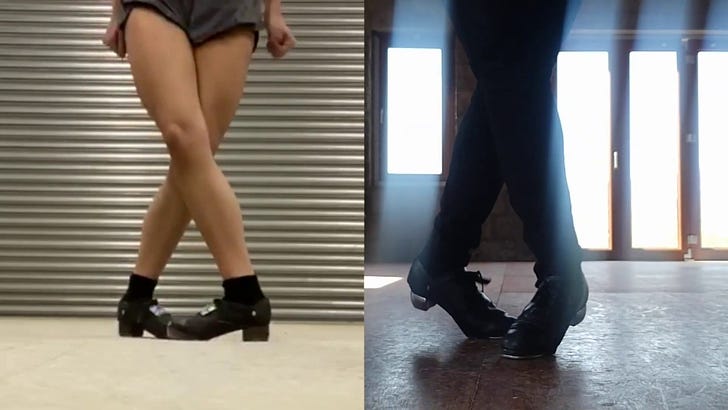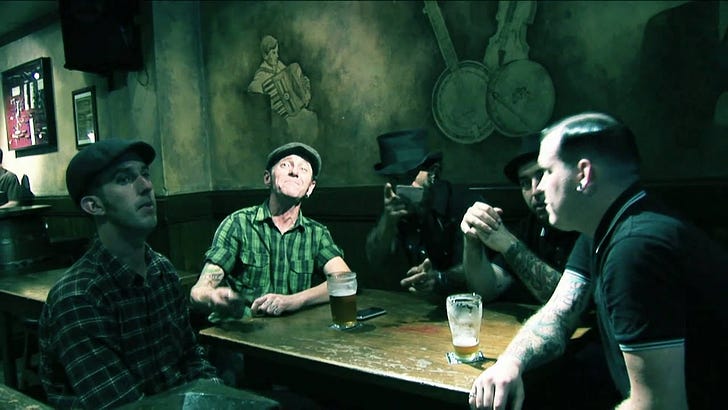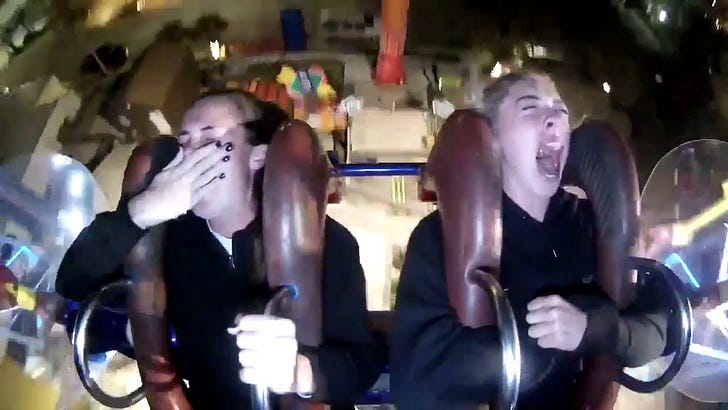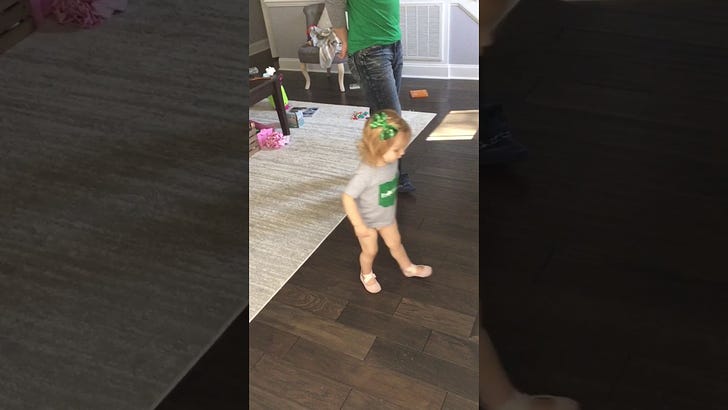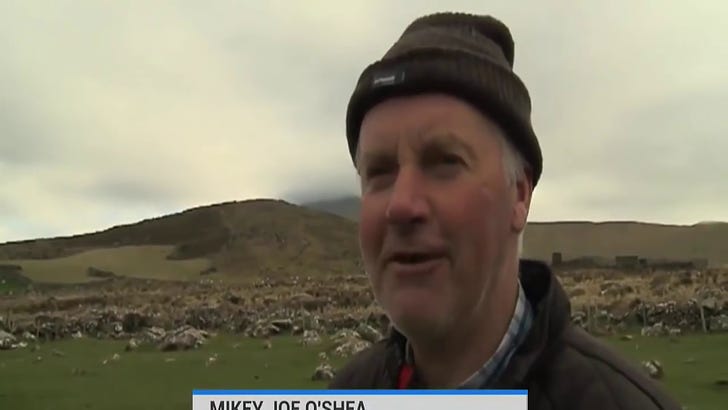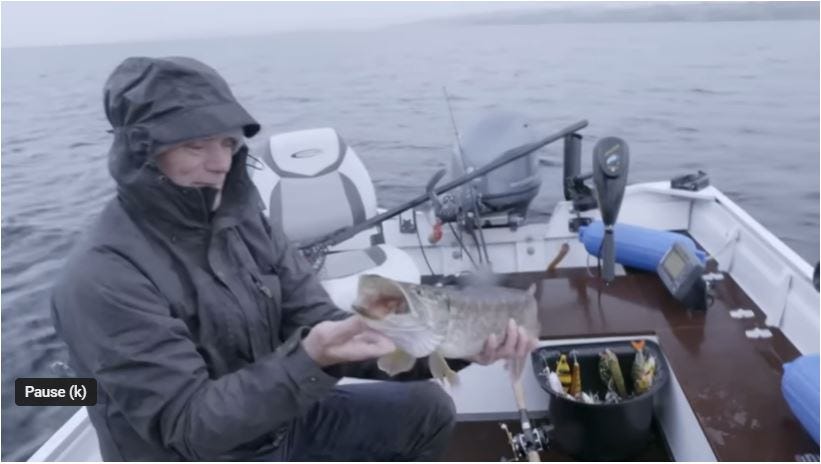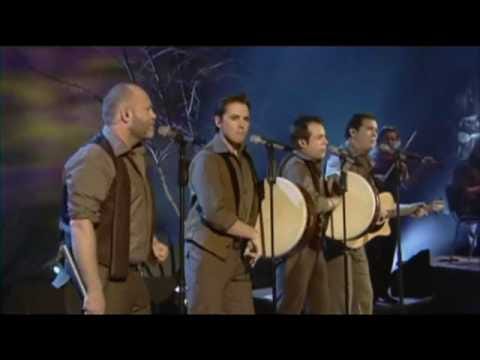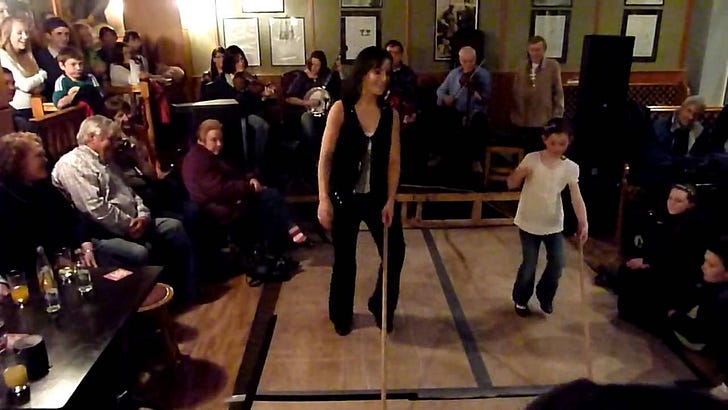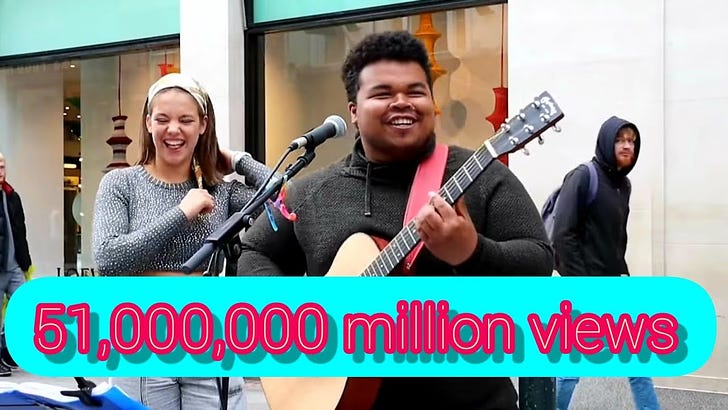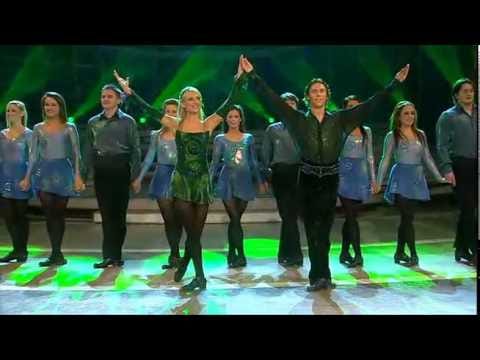In the Face of Famine, a Nursery Rhyme evolves: The Emotional Story of 'This Old Man'
Did you sing this as a kid? Here is the touching story behind it.
This old man he played one
He played nick nack on my drum
With a nick nack paddy whack
Give a dog a bone
This old man came rolling home
This old man he played two
He played nick nack on my shoe
With a nick nack paddy whack
Give a dog a bone
This old man came rolling home
This old man he played three
He played nick nack on my tree
With a nick nack paddy whack
Give a dog a bone
This old man came rolling home
This old man he played four
He played nick nack on my door
With a nick nack paddy whack
Give a dog a bone
This old man came rolling home
This old man he played five
He played nick nack on my hive
With a nick nack paddy whack
Give a dog a bone
This old man came rolling home
This old man he played six
He played nick nack on my stick
With a nick nack paddy whack
Give a dog a bone
This old man came rolling home
This old man he played seven
He played nick nack on my deven
With a nick nack paddy whack
Give a dog a bone
This old man came rolling home
This old man he played eight
He played nick nack on my gate
With a nick nack paddy whack
Give a dog a bone
This old man came rolling home
This old man he played nine
He played nick nack on my vine
With a nick nack paddy whack
Give a dog a bone
This old man came rolling home
This old man he played ten
He played nick nack on my hen
With a nick nack paddy whack
Give a dog a bone
This old man came rolling home
In a small village during the harsh years of the Irish potato famine, young Liam would sit by his window, watching the cobbled streets for a familiar sight. Each day, around the same time, an old man with a weathered face and kind eyes would roll into town, a dog faithfully trotting by his side.
This old man, known to everyone as Paddy, had traveled from Ireland, like many others, seeking survival and a way to feed his family. His cart was filled with 'knick knacks'—small, hand-carved toys and trinkets he hoped to sell. But Paddy had another talent. He played the spoons, creating a cheerful rhythm that echoed through the streets, a sound known as 'nick nack.'
Liam would listen eagerly for the clinking spoons and the familiar tune. "This old man, he played one, he played nick nack on my drum..." Paddy would sing, his voice carrying a sense of hope and resilience. Children would gather around, mesmerized by the melody and the sight of Paddy's dog, who would sit patiently, often being rewarded with a bone from a kind soul.
The villagers, despite their struggles, found joy in Paddy's visits. His songs brought a moment of light into their difficult days. Each verse added another layer to his tale, "He played nick nack on my shoe, on my tree, on my door..." And with each song, the villagers would come out with a few pennies or a piece of bread, moved by his determination and spirit.
One day, as the sun set and shadows grew long, Paddy's cart rolled home for the last time. He had fallen ill, the hardships finally taking their toll. The village mourned, feeling the absence of his music and the hope it brought. But his legacy lived on through the children's songs.
Liam, now a grown man, taught his children the same songs Paddy used to sing. "With a nick nack paddy whack, give a dog a bone, this old man came rolling home," he would chant, remembering the joy Paddy spread. The rhyme became a part of their family tradition, a reminder of resilience and the power of a simple tune to bring people together.
And so, the song endured, passing from one generation to the next, carrying with it the story of an old man who played the spoons and sold 'knick knacks' to survive, reminding everyone that even in the darkest times, music and kindness could light the way home.
Bored of the Usual Weddings? Experience the Magic of Irish Dance!
Irish dancing at a wedding is a vibrant and cherished tradition that brings a unique cultural flair to the celebration. Featuring both solo and group performances, Irish dancing is known for its rapid foot movements, rigid upper body, and the rhythmic tapping of hard-soled shoes. Dancers, often adorned in traditional Irish attire, mesmerize the audience…
5am and Worn Out at an Irish Wedding? Let ‘Ho, Ro, the Rattlin’ Bog’ Energize You!
When it’s 5 a.m. at an Irish wedding, the atmosphere is electric, and the spirit of celebration is undiminished despite the late hour. The traditional Irish folk song “Ho, Ro, the Rattlin’ Bog” echoes through the hall, an energetic tune that gets the blood pumping and the feet moving. It’s a staple of such occasions. The room spins with dancers, their s…
Abandoned on the Rails? Hamish’s Incredible Story of Hope and Love!
This adventurous dog has everyone guessing his destination. He was discovered traveling solo on the Irish Rail, seamlessly blending in with the other commuters. The Irish Rail staff named him Hamish and noted that he had boarded a train to Dublin, but no one came forward to claim a missing dog. To locate his owner, the staff turned to social media, hopi…
Think 'Danny Boy' Is Just Sad? Experience Joy with This Touching Performance
In the heart of Ireland, amidst rolling green hills and tranquil landscapes, a four-year-old sensation has captivated audiences worldwide with her soul-stirring rendition of the beloved classic, “Danny Boy.” Emma Sophia, a rising star with an innate talent and a heart as pure as the
Where And When Was The Quiet Man Filmed?
The Filming of "The Quiet Man "The Quiet Man," a 1952 romantic drama film directed by John Ford, is celebrated not only for its compelling narrative and performances but also for its breathtaking scenery. This cinematic masterpiece, starring John Wayne and Maureen O'Hara, was primarily filmed in the picturesque locales of Ireland, lending an …
Pierce Brosnan Is A Proud Irishman With An Unbreakable Bond With Ireland
When one thinks of Pierce Brosnan, the image of the dashing and charismatic James Bond often comes to mind. As the iconic British spy, Brosnan is known for his sharp wit, suave demeanour, and daring escapades. However, many may not realise that Brosnan, a Hollywood A-list actor, is a proud Irishman with deep roots in Ireland. In a recent video, Brosnan …
Irish Dance Feeling Stale? See How a Toddler Revives It!
In a heartwarming and delightful moment captured on video, a toddler has stolen the show by joining in the Best Ever Irish Dance Off in Galway City. The video, which has quickly gone viral, showcases the rich tradition of Irish dancing and highlights the innate love for dance that starts young in
Irish Dancing Not Your Thing? These Incredible Videos Will Win You Over!
Irish dancing is a captivating art form that has evolved over centuries, deeply rooted in the rich culture and history of the Emerald Isle. It's more than just a dance; it embodies the Irish spirit, full of energy, rhythm, and joy. Let's explore the enchanting world of
Never Heard of The Rumjacks? Their Raucous Energy Will Make You a Fan!
The Rumjacks, an Australian Celtic punk band, have captivated audiences with their passionate and raucous sound, earning them a dedicated fan base. Formed in 2008 in Sydney, the band has released five studio albums, two live albums, and several EPs and singles. In 2016, The Rumjacks relocated to various cities across Europe, where they continue to tour …
Terrified Screams Transform into Joy: Watch This Cork Woman's Viral Slingshot Ride!
In a viral video that has taken social media by storm, a Cork woman’s hilarious and genuine reaction to a slingshot ride has everyone laughing. The video captures the moment she and her friend, Megan, are about to be catapulted into the air on the adrenaline-pumping amusement park ride.
Danny Boy - History & Legacy of the Greatest Irish Song of All Time
Danny Boy: The History and Legacy of an Iconic Irish Song "Danny Boy," a song now nearly synonymous with Irish culture, has a rich history deeply rooted in Irish tradition. The tune's origins trace back to the early 20th century, when English lawyer and songwriter Frederic Weatherly penned the lyrics in 1910.
Think Irish Businesses Can't Compete Globally? Think Again - Discover Stripe's Inspiring Success Story!
Think Irish Businesses Can't Compete Globally? Think Again - Discover Stripe's Inspiring Success Story! In an era where technological giants are often assumed to emerge only from Silicon Valley, Stripe stands as a shining beacon of Irish innovation and g…
Security Shocker: How a Curb Stopped Obama's Beast in Dublin!
In an unexpected and somewhat humorous twist, President Barack Obama’s heavily fortified presidential limousine, known as "The Beast," encountered an unusual obstacle during his visit to Dublin, Ireland. While this state-of-the-art vehicle is designed to withstand bullets, missiles, and various other threats, it was a modest curb that managed to bring i…
Frustrating Day with the kids? This Toddler Teaching Dad to Dance Will Make You Smile!
Get ready to smile! Watch as this adorable toddler takes the lead and teaches her dad how to dance the Three Tunes Irish Dance. Their infectious joy and heartwarming moves will brighten your day and remind you of the pure, simple fun of dancing. Click to see this delightful father-daughter duo in action—it’s a must-watch moment that will leave you grinn…
Dreadful First Dates? This One Ends with the Funniest Laugh Ever!
In a delightful episode of "First Dates Ireland" on RTÉ2, the ambiance is filled with laughter and light-hearted banter as two strangers meet for the first time. The video captures a particularly hilarious moment, where one participant's laugh is so infectious
Think Poetry is Dull? Cillian Murphy's Voice Transforms 'When You Are Old' into Pure Magic!
If you doubt the power of the spoken word, Murphy's rendition of "When You Are Old" will make you reconsider. His voice captures the essence of the poem's melancholic beauty, from the wistful reflections of aging to the enduring power of love. Murphy's narration invites you to experience the gentle, bittersweet nostalgia of Yeats' words. So, if you've ev…
Can't Understand a Word? Farmers' Strong Irish Accent is Pure Gold!
In a twist that underscores both the challenges and the charm of rural Irish life, Gardaí in County Kerry are investigating the theft of up to 60 sheep on Mount Brandon. The incident has not only highlighted the plight of local farmers but also brought attention to the distinctive and endearing
Skeptical About Monster Fish? Jeremy Wade's Irish Pike Hunt is a Must-See!
In an enthralling episode of "Jeremy Wade's Dark Waters," the renowned angler Jeremy Wade embarks on a quest to uncover the legendary giant pike of Ireland. His journey brings him to Lough Derg, where he meets Danny Tierman, a seasoned fisherman whose family has fished these waters for generations. Danny reminisces about a monumental day from his youth,…
Think Irish Language Can't Rock? Let Avicii Vs Lurgan Prove You Wrong!
Stiofán Ó Fearail, a talented musician from Seo Linn, teamed up with the students and staff of Course C to create a unique rendition of Avicii's hit song "Wake Me Up." The music video, featuring Ó Fearail's distinct style, showcases the immense effort and preparation that went into its production. We hope you enjoy this vibrant and heartfelt performance…
Feel Like You've Heard It All? The High Kings' 'Rocky Road to Dublin' Is a Game Changer!
The High Kings, renowned for their dynamic and captivating performances, have once again thrilled audiences with their electrifying rendition of “Rocky Road to Dublin,” performed live in Dublin, Ireland. This lively Irish classic, delivered with their signature energy and passion, is a must-watch for both
Don't Miss Out: Discover the Magic of the Clifden Traditional Music Festival
At the inaugural Clifden Traditional Music Festival in April 2010, Irene Cunningham from the Cunningham Dancers Connemara and her young student, a Sean Nos dancer, captivated the audience with a traditional Irish ‘brush dance’ performance.Love Ireland is a reader-supported publication. To receive new posts and support my work, consider becoming a free o…
Not Just Another Street Performance – Witness the Unforgettable "Billie Jean" by Allie and Fabio!
In a captivating street performance in Dublin Ireland, Allie Sherlock teamed up with the incredibly talented Fabio Rodrigues to deliver a unique rendition of Michael Jackson's iconic hit "Billie Jean." This unexpected collaboration brought a fresh twist to the classic song, highlighting the exceptional vocal abilities and chemistry between the two artis…
Messing Up Irish Names? Saoirse Ronan and Stephen Colbert's Segment Will Make You Smile!
In a delightful segment on "The Late Show with Stephen Colbert," Irish actress Saoirse Ronan took on the challenge of teaching Stephen Colbert an authentic Irish accent. The interaction began with Stephen attempting an Irish brogue, only for Saoirse to gently correct him, noting that many people either pitch their voices too high or too deep when trying…
Most People Have No Idea This Incredible Irish Dance Video Exists - Prepare to Be Amazed!
Despite being available for several years, it's surprising how many people are unaware of this video! The Irish Riverdance is a renowned Irish step dancing company globally. Irish step dancing, while all dance forms are challenging, demands precise movements; anything less than perfect can disrupt the entire performance. It can take years for a team of …
Frustrated with False Claims? Discover the Real Temple Bar Anthem!
Irish singer Billy Treacy has dismissed country star Nathan Carter's assertion that he was the first to write a song about Temple Bar, Dublin's iconic pub district. Treacy, a Dubliner, revealed that he had released a song titled "Temple Bar" two years prior to Carter's claim. The 45-year-old expressed frustration that the Liverpool-born musician had decl…
Feeling Defeated? Celtic Woman’s "You Raise Me Up" Will Heal Your Spirit!
Celtic Woman’s performance of “You Raise Me Up” is a stunning showcase of their ethereal harmonies and powerful vocals. The video captures the group’s emotive interpretation of the song, blending traditional Celtic elements with contemporary music. The lush orchestration and serene visuals complement the uplifting message, making it an inspiring experie…
Some Things Change And Some Don't - A Stroll Through Time: Ronnie Drew's 1988 Tour Of Dublin City
Ronnie Drew's 1988 Tour Of Dublin City Welcome to a charming journey through Dublin City as seen through the eyes of the legendary Ronnie Drew, the iconic voice of The Dubliners. In this delightful video from 1988, Drew takes us on a personal and nostalgic tour of Ireland's vibrant capital. With his distinctive voice and rich storytelling, he explores th…





